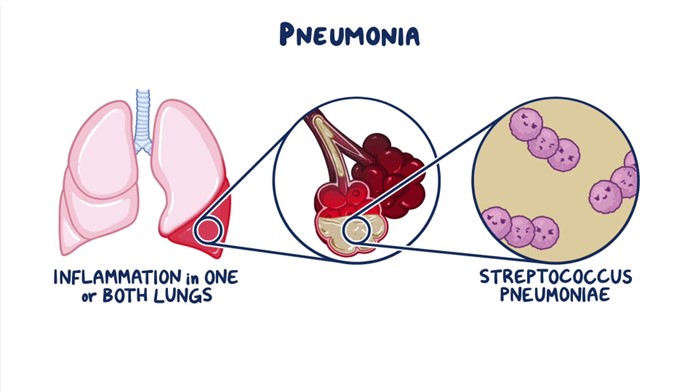In caring for a client who is receiving linezolid IV for nosocomial pneumonia, which assessment finding is most important for the nurse to report to the health care provider?
Yellow-tinged sputum
Nausea and headache
Watery diarrhea
Increased fatigue
The Correct Answer is C
Choice A: Yellow-tinged sputum is not a serious adverse effect of linezolid. It may indicate an infection or inflammation in the respiratory tract, but it does not require immediate attention from the health care provider.
Choice B: Nausea and headache are common side effects of linezolid. They are usually mild and self-limiting, and they can be managed with supportive measures such as hydration, rest, and analgesics.
Choice C: Watery diarrhea is a sign of pseudomembranous colitis, a potentially life-threatening complication of linezolid. It is caused by an overgrowth of Clostridium difficile bacteria in the colon, which produce toxins that damage the intestinal mucosa. It can lead to dehydration, electrolyte imbalance, sepsis, and perforation. The nurse should report this finding to the health care provider immediately and stop the linezolid infusion.
Choice D: Increased fatigue is not a specific or serious adverse effect of linezolid. It may be related to the underlying infection, anemia, or other factors. It does not require urgent intervention from the health care provider.

Nursing Test Bank
Naxlex Comprehensive Predictor Exams
Related Questions
Correct Answer is ["A","D","E"]
Explanation
Choice A reason: This is a correct answer because determining if the mother has recently experienced a fall is important to rule out any head injury or concussion that could cause confusion. Parkinson's disease can increase the risk of falls due to impaired balance, coordination, and mobility.
Choice B reason: This is not a correct answer because reviewing the client's current food and medication allergies is not relevant to the mother's confusion. However, it may be important to review the client's current medications and dosages to check for any adverse effects or interactions that could affect cognition.
Choice C reason: This is not a correct answer because encouraging increased intake of high protein foods is not helpful for the mother's confusion. In fact, high protein foods may interfere with the absorption of levodopa, a medication used to treat Parkinson's disease symptoms. The nurse should advise the daughter to consult with a dietitian about the optimal timing and amount of protein intake for her mother.
Choice D reason: This is a correct answer because instructing the daughter to check her mother's temperature is important to detect any fever or infection that could cause confusion. Older adults are more susceptible to infections such as urinary tract infections (UTIs), pneumonia, or sepsis, whih can affect mental status.
Choice E reason: This is a correct answer because asking if the mother is experiencing any pain with urination is important to screen for any UTI that could cause confusion. UTIs are common in older adults due to reduced bladder function, incomplete emptying, and decreased immunity. UTIs can cause symptoms such as dysuria, frequency, urgency, hematuria, and delirium.
Correct Answer is C
Explanation
Choice A: Measuring urine output daily is not a specific statement for the nurse to include, as this is a general recommendation for all clients with urinary catheters and does not address the potential complications of a suprapubic catheter. This is a distractor choice.
Choice B: Observing urine color and clarity is not a relevant statement for the nurse to include, as this does not reflect the condition of the suprapubic catheter or its insertion site. This is another distractor choice.
Choice C: Inspecting genital area for signs of infection is an important statement for the nurse to include, as this can help detect and prevent urinary tract infection, peritonitis, or abscess formation, which are common risks associated with suprapubic catheters. Therefore, this is the correct choice.
Choice D: Palpating flank area for tenderness is not a necessary statement for the nurse to include, as this is not an accurate or reliable method to assess for kidney function or damage, which are unlikely to occur with a suprapubic catheter. This is another distractor choice.
Whether you are a student looking to ace your exams or a practicing nurse seeking to enhance your expertise , our nursing education contents will empower you with the confidence and competence to make a difference in the lives of patients and become a respected leader in the healthcare field.
Visit Naxlex, invest in your future and unlock endless possibilities with our unparalleled nursing education contents today
Report Wrong Answer on the Current Question
Do you disagree with the answer? If yes, what is your expected answer? Explain.
Kindly be descriptive with the issue you are facing.
